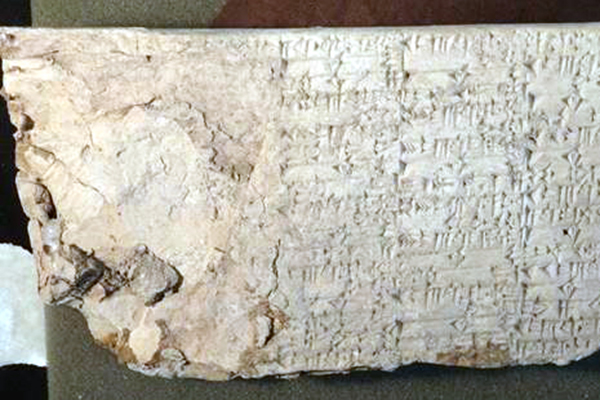Hobby Lobby has returned thousands of antiquities to Iraq after U.S. officials determined the artifacts were illegally obtained from Iraqi archaeological sites, making their purchase a violation of federal law.
The Oklahoma-based arts and crafts retailer will return 3,800 of the more than 5,500 objects it purchased in 2010 for $1.6 million, according to news reports.
The U.S. Department of Justice (DOJ) determined Hobby Lobby bought the artifacts despite being warned by an “expert on cultural property law” that the objects could have been looted from Iraqi archaeological sites.
The boxes containing the artifacts were falsely labeled as “tile samples” and “ceramics” and came into the U.S. through a United Arab Emirates-based supplier.
“The acquisition of the artifacts was fraught with red flags,” the DOJ statement said.
A $3 million fine
The antiquities, which include cuneiform tablets, cylinder seals and clay bullae, were returned to Baghdad on May 2.
In 2017, Hobby Lobby agreed to pay a $3 million fine to settle a civil lawsuit from the Justice Department over the acquisition.
Hobby Lobby President Steve Green said in a statement in July 2017 that the company “should have exercised more oversight and carefully questioned how the acquisitions were handled.”
The antiquities were to be part of a collection of historical Bibles and other artifacts about the Bible “consistent with the company’s mission and passion for the Bible,” Green said in the statement.
Hobby Lobby helped fund the Museum of the Bible, a $500 million venture in Washington that contains some 40,000 biblical artifacts. The museum received $201 million worth of artifacts from Hobby Lobby and the Green family’s large collection of Christian pieces, The Washington Post reported.
The DOJ said Hobby Lobby had pledged to set up policies on the buying of cultural property, provide necessary training to its personnel, hire qualified outside customs counsel and customs brokers and submit quarterly reports to the government on any cultural property it buys for 18 months. (TAB)






Share with others: